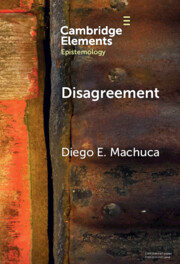Legal experts—lawyers, judges, and academics—typically resist changing their beliefs about what the law is or requires when they encounter disagreement from those committed to different jurisprudential or interpretive theories. William Baude and Ryan Doerfler are among the most prominent proponents of this view, holding it because fundamental differences in methodological commitments severs epistemic peerhood. This dominant approach to disagreement, and Baude and Doerfler’s rationale, are both wrong. The latter is committed to an overly stringent account of epistemic peerhood that dogmatically excludes opponents. The former violates the conjunction of three plausible epistemic principles: Complete Evidence, considering all epistemically permissible evidence; Independence, in which only dispute-independent evidence is epistemically permissible; and Peer Support, which involves epistemically permissible evidence. Instead, I argue for jurisprudential humility—we ought to be more willing to admit we do not know what the law is or requires, and take seriously conflicting views.
